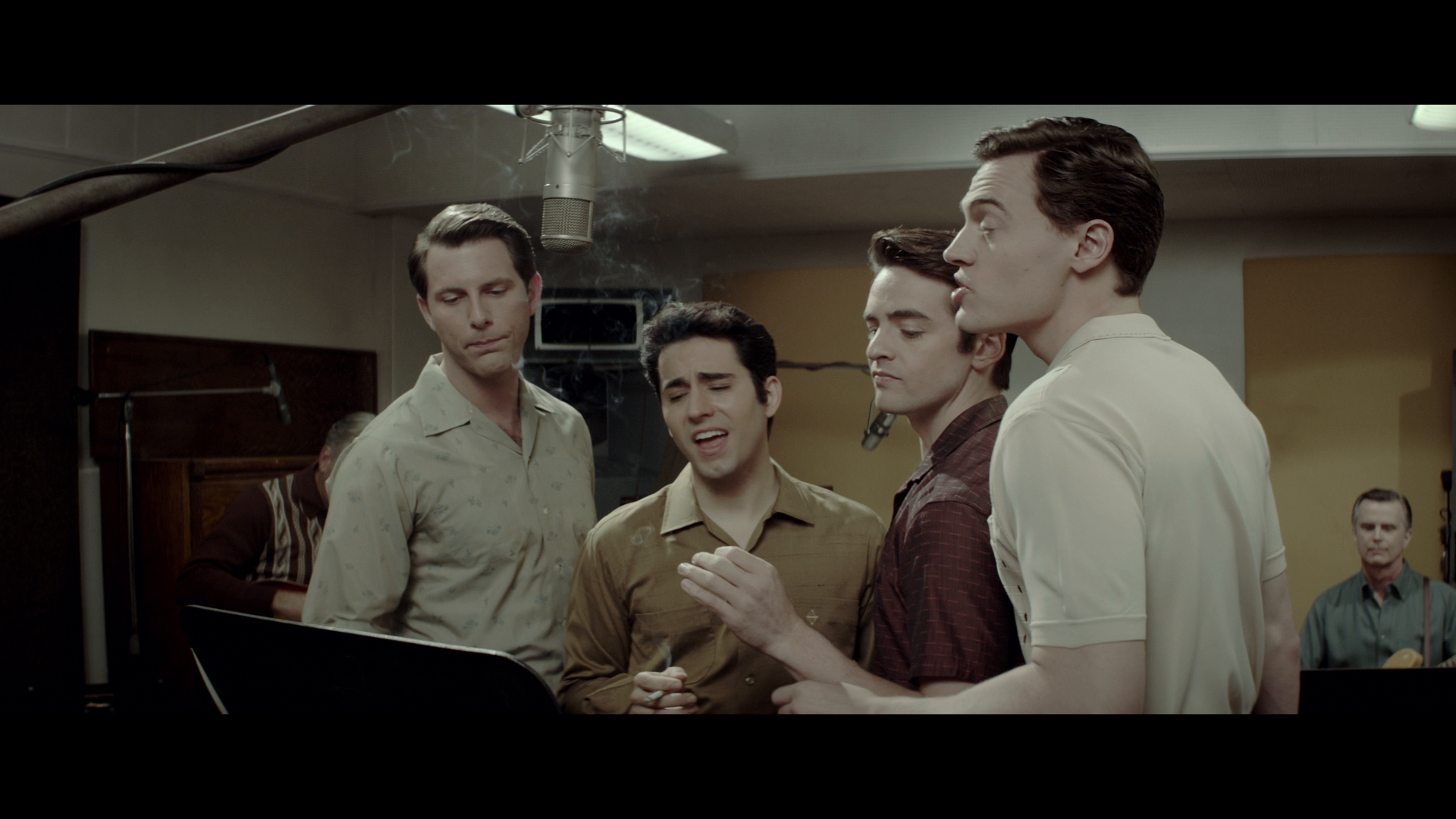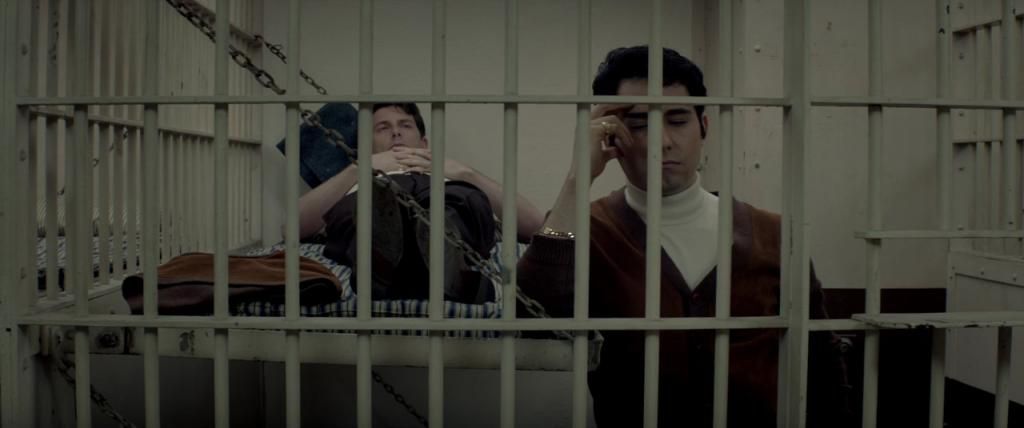We as a society often look to historical figures and
pop culture icons for inspiration. As a result, one of the most popular forms
of storytelling in modern film making is the biography. One of the increasingly
popular trends in the sometimes stale genre is the musical biography, which
uses song and dance to incorporate additional depth and emotional resonance
into stories that otherwise, by their very nature, follow a predictable
structure. While it is a risk to blend such divergent genres, this week’s toe
tapping subject, Jersey Boys, manages
to not only blend, but transcend the trappings of both genres to tell the story
of the rise, fall, and redemption of one of modern music’s most enduring
groups, the Four Seasons.
 |
| A group you won't be able to take your eyes off of |
The story begins in 1951 with group members Frankie
Valli (John Lloyd Young), Tommy DeVito (Vincent Piazza), and Nick Massi (Michael Lomenda) along with Tommy’s younger brother, Nicky (Johnny Cannizzaro),
forming their own doo-wop group. Despite their musical aspirations, the
foursome find themselves spending more time dodging police and rotating in and
out of prison than rehearsing, as they are increasingly drawn into the criminal
element of their notoriously tough New Jersey neighborhood. The group continues
on in their roller-coaster existence until Nicky leaves the group and Tommy’s
friend, a still unknown Joe Pesci (Joseph Russo), suggests that they contact teen songwriting
sensation Bob Gaudio (Erich Bergen). After hearing Frankie sing just one song the initially hesitant Gaudio
joins the act and the Four Seasons as they are best known are born. The film
then chronicles the group’s rise after years of struggle and the devastating
fall that comes when financial debt, in-fighting, and life in the spotlight
threatens to tear them apart.
While the film covers the themes and plot points
familiar to the biography, the characters’ gritty backstory and complex personalities
elevates the story to an almost Shakespearean tale of honor, friendship,
betrayal and redemption. Although Hollywood is notorious for sanitizing and
glorifying real-life figures in its fictional portrayals, Jersey Boys not only acknowledges, but explores the ways in which
the Four Seasons were shaped and nearly destroyed by the bonds and habits that they
carried with them from their years in the neighborhood. From their beginnings
as juvenile delinquents to their eventual breakup at the height of their
success after a mob deal gone wrong, the film spares its characters from no
ugly incidents or painful memories. Each of the band’s members demonstrate a
variety of flaws and make their fair share of mistakes and questionable
decisions. Whether it’s living beyond their means, neglecting their families to
party on the road, or fraternizing with all too available groupies, none of the
band’s members are immune to the lure of life in the fast lane. Rather than
alienating audiences, the band’s faults serve to show them as multi-faceted people
whom audiences can recognize and relate to rather than unattainable celebrities.
As a result, the audience is able to invest in the band’s journey and root for its
success, regardless of whether they are long-time listeners or casual viewers. The
film’s incorporation of the band’s music highlights also the story’s highs and
lows without ever becoming intrusive. When the band first starts performing, for
instance, the audience is able to see is potential, but can easily imagine the
long road that it will take for it to reach that potential. Similarly,
the use of such fan favorites as “Sherry”, “Walk Like a Man”, and “Can’t Take My
Eyes Off Of You” transports viewers into the world of both the band and the
culture early 1960’s America that they inhabit. As a result, viewers are drawn
into both the inner and public lives of each band member in such a way as to
highlight both their unique success and universal struggles.
Despite the story’s intriguing premise, the film would
not have become the dynamic crowd-pleaser that it is without a cast who could
adequately bring it to life. The cast, largely members of the original Broadway
cast, turn in performances that combine raw emotion with a subtle understanding
of their roles that ensure the film makes a successful transition to the screen.
John Lloyd Young successfully tackles the difficult task of performing in
Frankie Valli’s falsetto style without resorting to blatant mimicry, all while
imbuing his performance with equal parts sensitivity and street-wise charm.
Vincent Piazza nearly steals the film in his portrayal of the rakish Tommy, whose
con-man charm endears him to audiences despite his reckless behavior. Michael
Lomenda and Erich Bergen hold their own in the less flashy roles of Nick and
Bob and round out the foursome with performances that are equal parts
intelligent, comic, and emotionally honest. The supporting cast lend apt
support with Christopher Walken and Mike Doyle particularly standing out as the
mobster who first notices the group’s talent and the manager who brings them
mainstream success.
Both an entertaining musical and an effective
biography, Jersey Boys has the best qualities
of both genres and more. Rather than focusing upon one individual, the film
tells the story of each band member in a way that shows how the ways in which their
paths both intersected and separated influenced each other’s lives. At
once a rags to riches Cinderella story and a cautionary warning against the
high cost of fame, the film is a truly dynamic tale of what matters most when
the spotlights fade. Break out your records and put on your dance shoes for an
experience that will leave you humming, and reflecting long after the final
credits roll.
 |
| If only today's boy bands had such talent |


No comments:
Post a Comment